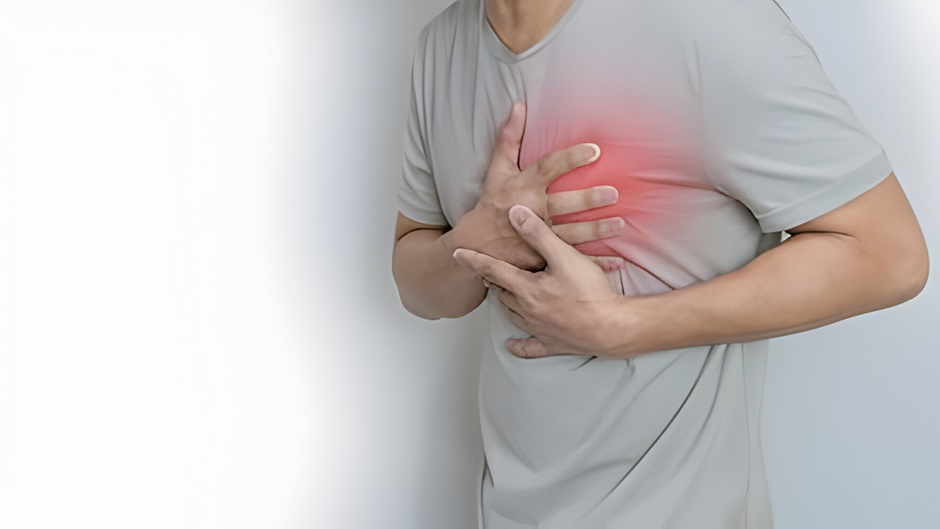Although the exact mechanism of heart palpitations is unknown, it is generally considered as the sensation generated by the abnormal movement of the heart within the chest. Normal heart rhythm is not perceived. A patient may feel like he is skipping a beat or having heart attacks even if his heart is going through an extrasystole. The experience may also vary from person to person as some people are aware of every small change, but others may be unaware of complex changes in the heart rhythm.
Experiencing excessive heart palpitations? Visit a super speciality hospital in Indore today for an effective diagnosis of the same.
What causes heart palpitations?
- As discussed earlier, some people may be overly sensitive to slight alterations in their heart rhythm. For such people, strenuous exercise, dehydration, lack of sleep, or drinking too many stimulants like alcohol or caffeine can also lead to the sensation of heart palpitations.
- Other bad habits, such as tobacco, cocaine, or stimulants, can also cause palpitations.
- Psychological triggers such as stress and anxiety or panic attacks can prove to be potential palpitations causes as well. In addition, during a panic attack, the patient may experience nausea, weakness or numbness in the extremities, chest pain, and shortness of breath.
- Medications such as asthma medications, antihistamines, antibiotics, antidepressants, and antifungal medications, for medicines for high blood pressure, can also trigger heart palpitations.
- Hormonal changes during periods, pregnancy, or menopause or due to an overactive thyroid can also cause this symptom.
Heart conditions that can trigger palpitations:
- Cardiac arrhythmia like supraventricular tachycardia – Palpitations usually start suddenly and are accompanied by sweats and sustained feelings of dizziness.
- Atrioventricular episodic heart block – The heart palpitations usually start over minutes or hours and feel like slow and forceful beats. The patient may become pale and may lose consciousness.
- Sinus tachycardia is usually triggered by anxiety, pain, fever, caffeine, and pulmonary embolism. Pulmonary embolism is a dangerous condition where there is a clot in the vessels of your lungs. Palpitations causes usually start slowly over minutes, and they are generally regular.
- Ventricular ectopy – Palpitations will feel like early or skipped beats and will come in short bursts or as a single one at a time. However, this may be noted over several hours or days and may be associated with anxiety.
- Other heart conditions which may lead to the feeling of palpitations or skipped beats include:
- Atrial fibrillation (Read more)
- Bradycardia (Read more)
- Tachycardia (Read more)
- Ventricular tachycardia (Read more)
- Mitral valve prolapse (Read more)
- Heart failure (Read more)
- Hypertrophic cardiomyopathy (Read more)
- Some congenital heart conditions (Read more)
If you are facing heart palpitations and symptoms of heart attacks, visit a super speciality hospital in Indore at the earliest.
Other medical conditions that may lead to heart palpitations include:
- Anaemia
- Low blood sugar
- Low blood pressure
- Thyroid Storm – In cases of increased thyroxin, the symptom is usually accompanied by anxiety, irritability, loss of weight, increased sweating, and frequent, loose stools.
- Electrolyte imbalance in the body
When should you seek care for palpitations?
Suppose you experience symptoms of heart palpitations and heart attacks such as severe shortness of breath, pain or tightness in the chest, lightheadedness or dizziness, or feel like you are about to faint while experiencing heart palpitations. In that case, it is better to seek immediate medical attention.
However, if heart palpitations happen in less than 30 seconds and pass quickly, you can continue to monitor them and try to correlate them with habits or palpitations causes. If you have other heart problems or palpitations that last for long periods and tend to get worse or other symptoms, it is better to consult a doctor at a super speciality hospital in Indore and identify the palpitations causes.










